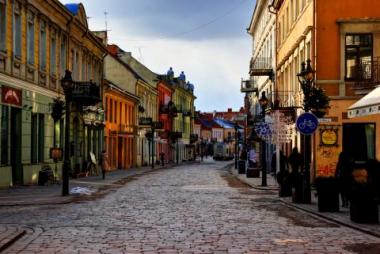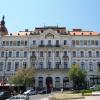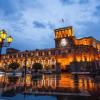Armenia Model European Union 2016 is a youth project aiming to increase the knowledge of participants about the interrelations of national and Euro
Expedition – Designing Adventure in Rural Environment

You work as a youth worker in rural environment? Youngsters complain that there is nothing to do there? You want to use digital technologies and develop their adventure skills in the middle of nowhere? Then come to ‘Expedition’!
Description
This training course is about how to make use of rural environment for adventure learning programmes that involve the use of technologies, training the adventure and orientation skills and motivate young people to connect to their physical environment, be physically active and develop their transversal skills. After accomplishing this training course you will have ideas and methods, how to use deprived rural environment for learning in a cool way.
The training course will offer opportunities for 27 youth leaders, youth workers and trainers to develop their personal and professional competences. The participants are expected to be:
Working directly with young people from inclusion groups in the deprived rural or urban environments;
Interested to learn new methodologies and practice them with their target groups;
Willing to invest into their personal and professional development;
At least 21 years old
Aims and objectives
The general aim of this training is to empower participants to design learning programs tailored to the needs and interests of young people by making the use of rural environment they work in.
After this training course participants will be able to create adventurous learning opportunities, through which young people would gain various transversal skills; will become more motivated to participate in the matters of community and become physically active.
Specific objectives of this training course:
To offer learning opportunities participants to practice various approaches, methods and technological tools as elements for adventure learning programmes in deprived rural environments;
To create opportunities for participants to learn to analyse own environment for creating tailored learning challenges for young people and community;
To create a learning support group for peer‐coaching and support from the trainers for testing their ideas in youth work practice;
To reflect and assess youth work practices and competences using European recognition tools (Youthpass, Youth Work Portfolio and Open Badges);
To collect and disseminate innovative youth work methods which can be applied with inclusion youth groups living in the deprived rural environments
Working methods
During the 1str training course, the rural environment and nature around will provide the base and resources for learning and training activities. The environment may be challenging, because it does not provide any particular attractions in a conventional sense.
The participants first will exchange their experiences of making the use of their own rural environments for young people’s learning. Then they will be faced with the exercises challenging them to explore the rural environment of surrounding villages and nature. Their tasks will be to explore and identify opportunities for designing experiential learning programmes for young people.
Participants will have opportunities to learn from local organisations their methodologies of designing and implementing learning programmes in deprived rural environments and nature. Participants will be challenged to create learning programmes in this particular rural environment in the form of ‘Expedition’ – where learning happens while traversing distances with difficulties and reflecting upon them
This training course will be followed by the 2nd training course in Weimar, Germany, ‘Expedition – Designing Adventure in Urban Environments’ 24.09- 30.09.2016.
Towards the last part of the training, participants will work in international teams to design new methods, practice digital tools and discuss approaches in order to train the skills to create learning programmes making the use of opportunities and resources of their local environments.





